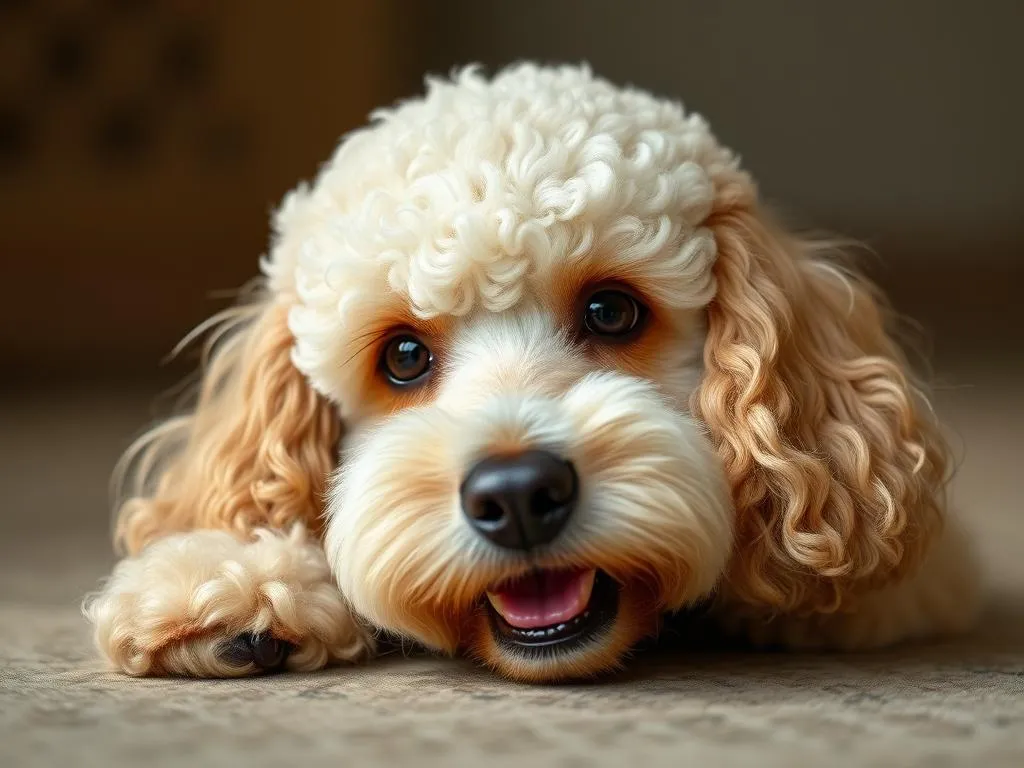
Introduction
Poodles are one of the most popular dog breeds worldwide, known for their intelligence, elegance, and distinctive curly coats. Originating from Germany as water retrievers, they come in three sizes: standard, miniature, and toy. Each size possesses unique characteristics, yet they share a common behavioral trait: licking. Understanding why Poodles lick so much is crucial for owners who want to maintain a healthy and happy relationship with their furry companions.
In this article, we will delve into the various reasons behind this behavior, which can range from normal to excessive. We aim to equip Poodle owners with insights and practical solutions to manage licking behaviors effectively.
Understanding Dog Behavior
Basic Canine Behaviors
Dogs, by nature, engage in a myriad of behaviors, and licking is one of the most instinctual. From puppyhood, dogs lick to explore their surroundings and communicate with their mother and littermates. For Poodles, licking serves multiple purposes: it’s a grooming mechanism, a way to show affection, and a means of communication.
Communication Through Licking
Licking isn’t just about hygiene; it’s also a form of communication. Dogs lick each other to establish social bonds, show submission, or greet one another. When your Poodle licks you, it’s often a sign of affection, comfort, and trust, reinforcing your bond. Understanding this aspect of their behavior is vital in recognizing when their licking is simply a natural expression of love versus when it crosses into excessive territory.
Reasons Why Poodles Lick So Much
Grooming and Hygiene
Poodles are known for their beautiful coats, which require regular grooming. Instinctively, dogs lick themselves to clean and groom. This behavior helps remove dirt, debris, and loose fur. In Poodles, licking is a fundamental part of their hygiene routine, helping them maintain cleanliness and a healthy coat.
Seeking Attention
Poodles are highly social animals that thrive on interaction with their humans. When they lick, it’s often a way to get attention or initiate play. If your Poodle has learned that licking results in pets, treats, or playtime, they may continue to engage in this behavior, making it a learned response for seeking interaction.
Anxiety and Stress Relief
Like many dogs, Poodles can experience anxiety or stress, which may manifest through excessive licking. This behavior can become a self-soothing mechanism, helping them cope with feelings of unease. Signs of stress in Poodles may include panting, pacing, or destructive behaviors, alongside licking. Recognizing these signs is crucial for addressing any underlying anxiety issues.
Taste Sensation
Poodles are naturally curious creatures. They explore their environment through their senses, and licking is a way to gather information about objects, people, and even surfaces. Whether it’s the taste of a new toy or the scent of a human, licking can be their way of investigating the world around them.
Medical Issues
While licking is often harmless, excessive licking can indicate underlying health issues. Common medical conditions that may lead to increased licking in Poodles include allergies, skin infections, or irritations. If your Poodle is licking obsessively, it’s essential to consult with a veterinarian to rule out any medical concerns.
Identifying Excessive Licking
Normal vs. Excessive Licking
Understanding the difference between normal and excessive licking is crucial for Poodle owners. Normal licking occurs occasionally and is often context-driven, such as during grooming or when excited. However, excessive licking is characterized by repeated, compulsive behaviors that can lead to skin damage or infections.
Monitoring Your Poodle’s Behavior
Keeping an eye on your Poodle’s licking habits can help identify any changes that may indicate a problem. Observing their behavior in different situations—after meals, during playtime, or when left alone—can provide insights. If you notice persistent licking that doesn’t seem to have a clear cause, it might be time to consult a veterinarian.
Solutions and Management Strategies
Behavioral Training
If your Poodle’s licking is excessive, implementing behavioral training techniques can help. Positive reinforcement methods—rewarding alternative behaviors with treats or praise—can redirect their licking habits. For instance, if your Poodle starts licking, you can distract them with a toy or command them to perform a different action, like sitting or lying down.
Providing Alternatives
Providing your Poodle with engaging toys can redirect their licking behavior. Chew toys or interactive puzzles can serve as effective distractions, keeping their mouths busy and their minds stimulated. Additionally, ensuring your Poodle receives regular exercise can decrease boredom and reduce excessive licking.
Addressing Health Concerns
Regular veterinary check-ups are essential for monitoring your Poodle’s health. If excessive licking is linked to allergies or skin conditions, your veterinarian can recommend appropriate treatments or dietary changes. Keeping your Poodle healthy is a proactive way to minimize licking behavior that stems from medical issues.
Stress Reduction Techniques
Creating a calming environment for your Poodle can significantly help reduce anxiety-related licking. Establishing a routine, providing a safe space, and incorporating relaxing activities like gentle walks or playtime can enhance their overall well-being. In some cases, anxiety-reducing products, such as calming collars or supplements, may also be beneficial.
Conclusion
Understanding why Poodles lick so much is essential for any owner who wants to foster a healthy relationship with their pet. From natural grooming behaviors to expressions of affection and potential signs of anxiety, licking serves various purposes. By recognizing normal versus excessive licking and implementing effective management strategies, Poodle owners can address their pets’ needs with empathy and care.
Taking the time to understand your Poodle’s behavior not only strengthens your bond but also enhances the overall quality of life for your beloved companion.
FAQs
Is licking a sign of affection?
Yes, licking is often a way for dogs, including Poodles, to express affection and bond with their owners.
How can I tell if my Poodle’s licking is a problem?
If your Poodle’s licking becomes excessive, leading to skin irritation or obsessive behavior, it may indicate a problem that needs to be addressed.
Should I stop my Poodle from licking altogether?
While some licking is natural, it’s important to manage excessive licking. Redirecting the behavior or addressing underlying issues is preferable to completely stopping it.
Can diet affect my Poodle’s licking behavior?
Yes, certain diets can contribute to skin irritations or allergies, leading to increased licking. A balanced diet tailored to your Poodle’s needs can help minimize such issues.
What should I do if my Poodle has a skin condition related to licking?
Consult your veterinarian to discuss treatment options. They can provide a proper diagnosis and recommend suitable medications or changes in care.
By understanding the various reasons behind your Poodle’s licking behavior, you can foster a healthier and more rewarding relationship with your furry friend.









